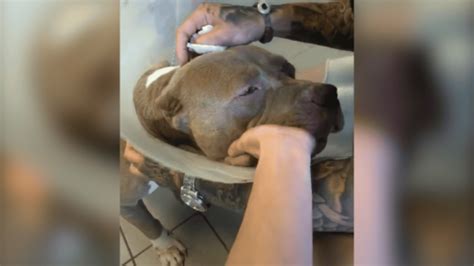
A corgi named Louis hilariously demonstrated his displeasure with a camping trip by aggressively packing his bags and staging an “I’m Outta Here!” escape, as captured in a viral TikTok video that has amused and resonated with viewers worldwide.
The now-viral video, posted by TikTok user @thelifeoflouie_, shows Louis systematically removing items from his camping backpack and scattering them around the campsite while his owners were busy packing up, showcasing his clear and comical desire to end the outdoor adventure. The video, captioned with “When you are done camping and take matters into your own paws,” has garnered millions of views and comments, solidifying Louis’s status as a relatable canine comedian.
The video opens with a shot of Louis’s camping backpack. The next shot showed Louis pulling out his blue ball from the backpack. He pauses before continuing, pulling out more items. In rapid succession, Louis removes all of the items that were in his backpack and abandons ship!
According to the video’s comments, Louis seemed to express his feeling on the camping trip. “This aggressive exit strategy has resonated with many viewers, who have shared their own stories of pets expressing their displeasure with various activities. Many find Louis’s actions relatable, joking about feeling the same way about camping or other unwanted situations.
The video resonated with dog owners who’ve experienced similar canine protests. One user commented, “My dog does this when he wants to leave the dog park. He starts grabbing his leash and throwing it at me.” Another wrote, “That’s how I feel about camping too, Louie,” highlighting the human-animal connection and the shared dislike of certain activities.
The popularity of the video reflects the internet’s love for animals displaying human-like emotions and behaviors. Louis’s dramatic exit strategy is not just entertaining; it also provides a humorous commentary on our relationships with our pets and the ways they communicate their preferences. The video sparked a conversation about pet communication, with many users sharing their experiences and interpretations of their pets’ actions.
The incident serves as a reminder of the importance of understanding and respecting the needs and preferences of our animal companions. While Louis’s actions were undoubtedly comical, they also underscore the fact that pets have their own ways of expressing their feelings, even if it means staging a dramatic camping exit.
The corgi breed is known for their intelligence, playful nature, and strong-willed personalities. Louis’s behavior aligns with these characteristics, showcasing his ability to problem-solve and communicate his desires in a unique and memorable way.
The video of Louis’s camping protest continues to circulate online, bringing laughter and amusement to viewers around the world. It serves as a lighthearted reminder of the joys and challenges of pet ownership and the importance of understanding and respecting our furry friends’ individual personalities.
The video also raises questions about the ideal length and frequency of camping trips with pets, as well as the factors that can contribute to a pet’s enjoyment or dissatisfaction with outdoor activities. Experts suggest that careful planning, preparation, and observation are key to ensuring a positive camping experience for both humans and their animal companions.
In-Depth Analysis and Background Information
The viral video of Louis the corgi’s dramatic camping exit is more than just a funny internet clip; it’s a microcosm of the complex relationship between humans and their pets, highlighting themes of communication, understanding, and the projection of human emotions onto animal behavior. The video’s widespread appeal stems from its relatability and the way it taps into our shared experiences of pet ownership.
Relatability and Projection:
One of the primary reasons for the video’s popularity is its relatability. Many viewers have commented that they feel the same way about camping as Louis, or that their own pets have exhibited similar behaviors in response to unwanted activities. This relatability stems from our tendency to project human emotions and motivations onto our pets. While it’s impossible to know exactly what Louis was thinking or feeling, his actions are easily interpreted as a sign of displeasure and a desire to leave the campsite.
This projection of human emotions onto animals is a common phenomenon, rooted in our desire to understand and connect with our pets. We often attribute human-like qualities to animals, such as happiness, sadness, anger, or boredom, based on their behavior and our own emotional responses. While this can be a positive aspect of the human-animal bond, it’s important to recognize the limitations of this projection and to avoid anthropomorphizing animals to the point where we misinterpret their needs or behaviors.
Communication and Understanding:
Louis’s camping exit strategy, while comical, also underscores the importance of communication and understanding in our relationships with pets. Pets communicate with us in a variety of ways, including body language, vocalizations, and behaviors. It’s our responsibility as pet owners to learn to interpret these signals and to respond appropriately.
In Louis’s case, his actions can be seen as a form of communication, signaling his dissatisfaction with the camping trip. Whether his owners were aware of his discomfort before he began packing his bags is unclear, but the video serves as a reminder to pay close attention to our pets’ behavior and to address their needs and concerns.
Understanding a pet’s individual personality and preferences is also crucial. Some pets thrive in outdoor environments and enjoy camping, while others may be more comfortable in the familiar surroundings of their home. It’s important to consider these individual differences when planning activities with pets and to avoid forcing them into situations that they clearly dislike.
The Corgi Breed:
The corgi breed is known for their intelligence, playful nature, and independent spirit. These characteristics are evident in Louis’s behavior. Corgis are intelligent dogs that are capable of problem-solving and learning complex tasks. Their playful nature makes them entertaining companions, but their independence can also lead to stubbornness and a desire to do things their own way.
Louis’s decision to pack his bags and leave the campsite can be seen as an example of his intelligence and independence. He recognized that he was unhappy and devised a plan to remedy the situation. His actions demonstrate his ability to think for himself and to take initiative, even if it means going against his owners’ wishes.
Responsible Pet Ownership:
The video of Louis’s camping exit also raises questions about responsible pet ownership. While it’s important to provide pets with opportunities for exercise and enrichment, it’s equally important to ensure their safety and well-being. This includes considering their comfort level in different environments and avoiding activities that may cause them stress or anxiety.
When planning a camping trip with a pet, it’s important to take several factors into consideration, including the pet’s age, health, and temperament. It’s also important to research the campsite and to ensure that it’s pet-friendly and safe. This may involve checking for potential hazards, such as poisonous plants or wildlife, and making sure that the pet is properly supervised at all times.
Additionally, it’s crucial to pack appropriate supplies for the pet, including food, water, bedding, and any necessary medications. It’s also a good idea to bring a first-aid kit and to be prepared for emergencies.
The Power of Social Media:
The viral success of Louis’s camping exit video highlights the power of social media to connect people and to share experiences. The video has been viewed millions of times and has generated countless comments and shares. This widespread attention demonstrates the public’s fascination with animals and the internet’s ability to turn ordinary moments into viral sensations.
Social media platforms like TikTok provide a space for pet owners to share their stories and to connect with other animal lovers. These platforms can also be used to raise awareness about animal welfare issues and to promote responsible pet ownership.
Expanded Context:
The incident with Louis the corgi also resonates within the broader context of human-animal interactions and the evolving role of pets in modern society. Pets are increasingly seen as members of the family, and their well-being is a growing concern for many pet owners. This trend has led to increased demand for pet-friendly products and services, as well as a greater emphasis on responsible pet ownership.
In recent years, there has been a growing awareness of the importance of providing pets with enrichment and stimulation. This includes providing them with opportunities for exercise, play, and social interaction. Many pet owners are also seeking out activities that allow them to bond with their pets, such as hiking, camping, and agility training.
However, it’s important to remember that not all pets enjoy the same activities. Some pets may be perfectly content with a quiet life at home, while others may thrive in more active environments. It’s the responsibility of pet owners to understand their pets’ individual needs and preferences and to provide them with the care and attention that they deserve.
The video of Louis’s camping exit serves as a humorous reminder of the challenges and rewards of pet ownership. While it’s not always easy to understand what our pets are thinking or feeling, it’s important to pay attention to their behavior and to respond to their needs. By doing so, we can build stronger relationships with our animal companions and ensure their well-being.
Impact on Pet Travel and Camping Industries
The humorous incident involving Louis the corgi may seem like a standalone event, but it subtly underscores several important considerations for the pet travel and camping industries. As pet ownership continues to rise and owners become increasingly eager to include their furry friends in their travel plans, the need for pet-friendly amenities, thoughtful planning, and a greater understanding of animal behavior becomes ever more critical.
Pet-Friendly Amenities and Services:
The popularity of the video could prompt the camping and outdoor recreation industries to re-evaluate their offerings for pet owners. While many campgrounds and parks already allow pets, the level of pet-friendliness can vary significantly. Some facilities may simply permit pets on the grounds, while others offer dedicated dog runs, waste disposal stations, and even pet-washing stations.
The video highlights the importance of going beyond the basics and creating truly welcoming environments for pets. This could involve:
- Designated Pet-Friendly Areas: Creating separate camping areas specifically for pet owners, which may include larger campsites, fenced-in areas, and easy access to trails suitable for dogs.
- Pet-Specific Amenities: Providing amenities such as dog bowls, leashes, and waste bags at campsites. Some campgrounds could even offer pet-sitting services or dog-walking options for owners who want to participate in activities that are not suitable for pets.
- Information and Resources: Offering readily available information on local pet-related services, such as veterinary clinics, pet stores, and dog groomers. Campgrounds could also provide maps of pet-friendly trails and information on local wildlife hazards that could pose a threat to pets.
Thoughtful Planning and Preparation:
The video of Louis’s dramatic exit serves as a reminder that planning a successful camping trip with a pet requires careful consideration and preparation. Pet owners need to think beyond their own needs and consider the comfort and safety of their animal companions. This includes:
- Pre-Trip Veterinary Checkup: Ensuring that the pet is healthy and up-to-date on all vaccinations and preventative medications. It’s also a good idea to discuss the planned trip with the veterinarian and to obtain any necessary health certificates or travel documents.
- Acclimation to Camping Gear: Familiarizing the pet with camping gear, such as tents, sleeping bags, and backpacks, before the trip. This can help to reduce anxiety and make the pet more comfortable in the new environment.
- Packing the Right Supplies: Bringing all the necessary supplies for the pet, including food, water, bedding, toys, medications, and a first-aid kit. It’s also important to pack appropriate clothing and accessories, such as a raincoat or sweater, depending on the weather conditions.
- Training and Obedience: Ensuring that the pet is well-trained and obedient. This is especially important in outdoor environments where there may be distractions and potential hazards. The pet should be able to respond to basic commands, such as “sit,” “stay,” and “come.”
Understanding Animal Behavior:
The video of Louis’s protest underscores the importance of understanding animal behavior and recognizing the signs of stress or discomfort. Pet owners need to be able to interpret their pets’ body language and vocalizations and to respond appropriately.
In Louis’s case, his actions can be seen as a clear indication that he was unhappy with the camping trip. Other signs of stress or discomfort in pets may include:
- Excessive panting or drooling
- Trembling or shaking
- Hiding or retreating
- Changes in appetite or elimination habits
- Aggressive behavior
If a pet exhibits any of these signs, it’s important to take steps to address the underlying cause of the stress or discomfort. This may involve removing the pet from the stressful situation, providing them with a safe and comfortable space, or seeking veterinary care.
Promoting Responsible Pet Travel:
The pet travel and camping industries have a responsibility to promote responsible pet travel and to educate pet owners on how to plan safe and enjoyable trips with their animal companions. This can be achieved through:
- Educational Resources: Developing and distributing educational materials on responsible pet travel, including tips on planning, packing, and understanding animal behavior.
- Training Programs: Offering training programs for campground staff and other industry professionals on how to interact with pets and handle pet-related issues.
- Partnerships with Animal Welfare Organizations: Collaborating with animal welfare organizations to promote responsible pet ownership and to raise awareness of animal welfare issues.
By taking these steps, the pet travel and camping industries can help to ensure that all pets have safe and enjoyable travel experiences.
Ethical Considerations:
Beyond the immediate humor and entertainment value of the viral video, there are also underlying ethical considerations regarding the practice of bringing pets on camping trips and involving them in activities that may not be inherently suited to their needs and preferences.
Informed Consent:
The concept of informed consent, typically applied to human medical ethics, can be loosely adapted to the context of pet ownership and decision-making. While pets cannot provide explicit consent in the same way as humans, responsible owners should strive to make informed decisions that prioritize the animal’s well-being. This involves:
- Assessing the pet’s individual personality and temperament: Some pets are naturally adventurous and adaptable, while others are more timid and prefer familiar routines.
- Considering the potential risks and benefits of the activity: Weighing the potential enjoyment and enrichment that a camping trip might offer against the potential stress, anxiety, or physical challenges it could pose.
- Being attentive to the pet’s cues and signals: Continuously monitoring the pet’s behavior and body language throughout the trip to identify any signs of distress or discomfort.
- Being prepared to adjust or abort the trip if necessary: Prioritizing the pet’s well-being over personal desires or expectations, and being willing to alter plans if the animal is clearly not enjoying the experience.
Minimizing Stress and Discomfort:
The primary ethical obligation of a pet owner is to minimize any potential stress or discomfort that the animal may experience. This requires careful planning, preparation, and attention to detail:
- Creating a safe and comfortable environment: Ensuring that the pet has access to shelter, food, water, and a comfortable resting place.
- Protecting the pet from potential hazards: Identifying and mitigating any potential risks, such as poisonous plants, wildlife encounters, or extreme weather conditions.
- Providing opportunities for rest and relaxation: Allowing the pet ample time to rest and de-stress, especially after periods of activity or excitement.
- Avoiding forced participation: Respecting the pet’s boundaries and avoiding forcing them to participate in activities that they clearly dislike or fear.
Promoting Animal Welfare:
Ultimately, the ethical considerations surrounding pet travel and camping boil down to promoting animal welfare. This involves ensuring that the animal’s physical, emotional, and behavioral needs are met, and that they are treated with respect and compassion.
Responsible pet owners should strive to:
- Provide a loving and supportive environment: Creating a strong bond with the pet and providing them with plenty of affection and attention.
- Meet the pet’s basic needs: Providing them with proper nutrition, exercise, and veterinary care.
- Stimulate the pet’s mind: Providing them with opportunities for play, exploration, and learning.
- Advocate for animal welfare: Supporting organizations and initiatives that promote animal rights and welfare.
By adhering to these ethical principles, pet owners can ensure that their animal companions have positive and enriching experiences, whether they are camping in the wilderness or simply enjoying a quiet day at home.
Frequently Asked Questions (FAQ)
-
Why did the corgi, Louis, pack his bags during the camping trip?
Louis packed his bags as a humorous expression of his displeasure with the camping trip. His actions, captured in a viral TikTok video, showed him systematically removing items from his camping backpack, seemingly indicating his desire to leave.
-
What breed of dog is Louis, and how does this relate to his behavior?
Louis is a corgi. Corgis are known for their intelligence, playful nature, and independent spirit. Louis’s problem-solving skills and determination to express his feelings align with the breed’s characteristics.
-
What was the reaction of viewers to the viral video of Louis?
Viewers found the video amusing and relatable, sharing their own experiences of pets protesting activities. Many identified with Louis’s apparent dislike of camping, joking about feeling the same way themselves.
-
What are some ways pet owners can ensure a positive camping experience for their pets?
Pet owners can ensure a positive camping experience by careful planning, preparing appropriate supplies, researching pet-friendly campsites, understanding their pet’s needs and preferences, ensuring the pet’s safety, considering the pet’s comfort level, monitoring their pet’s behavior, and respecting the pet’s boundaries.
-
What ethical considerations should pet owners keep in mind when taking their pets camping?
Pet owners should consider informed consent (making decisions that prioritize the animal’s well-being), minimizing stress and discomfort (providing a safe and comfortable environment), and promoting animal welfare (ensuring the pet’s physical, emotional, and behavioral needs are met). Responsible pet owners should strive to treat their animals with respect and compassion, and should be prepared to adjust or abort the trip if the animal is clearly not enjoying the experience.









